#ramoth13
Explore tagged Tumblr posts
Text
A Message of Hope: Aurë entuluva

For absolutely no particular reason, I felt compelled today,- November 6th of 2024, to write about hope.
There are days when Hope feels foolish; when you have just watched in horror as things that once seemed sturdy and unbreakable, crumble and burn. Whether it is an elvish city or a chosen path, when that happens, Hope feels naive. It feels like that's what lead you here to begin with. It feels like, if you had been more realistic and pessimistic, you wouldn't be so hurt.
For all of the things that Tolkien wrote about, his message of hope was perhaps the most resilient, poignant, and enduring. Few can forget Sam's hopeful message to Frodo:

Yet, today, for many people it may not feel that this is true. I know I often struggle with hope, but today does feel exceptionally difficult (for no particular reason, of course).
Tolkien's most hopeful message, for me, comes from his bleakest story. Húrin's story is one of defeat. Courage sprang alive when high King Fingon and the elves and men fought together against the blackness of Morgoth's reign. The Nirnaeth Arnoediad, or Unnumbered Tears, was a day when victory was close and Turgon, brother of the king, arrived with a mighty host,
"Then When Fingon heard afar the great trumpet of Turgon, the shadow passed and his heart was uplifted, and he shouted aloud: 'Utúlie'n aurë! Aiya Eldalië ar Atanatarni, utúlie'n aurë! The day has come! Behold, people of the Eldar and Fathers of Men, the day has come!' And all those who heard his great voice echo in the hills answered crying: 'Auta i lómë! The night is passing!' "
They believed that their courage and steadfastness had saved them, that daybreak was soon at hand. Tolkien understood, perhaps better than most, that there was a difference between courage and hope. For courage is what spurs action, brings change, and inspires duty. Courage is what makes the difference when the time has come, just as they continued to fight on against orcish hordes. It was courage that led them into the heart of Angband where the Dark Lord himself sat shaking on his throne. Courage carried them past the gates, but betrayal can cut through courage like a hot-knife through butter. The hill men betrayed the men and elves and the dawning light turned into a simmering dusk.
Darkness had returned.

So, where was the hope?
With the elves slain or fleeing, Húrin, leader of his people fought valiantly to let his people and what was left of his elvish allies escape. Courage did survive the betrayal of the wild men, but only just. And with each swing of his axe he cried out, "Aurë entuluva!" And with each felled enemy, he cried out again, "Aurë entuluva!" Even as his enemies surrounded him, overtook him, and even when taken by the enemy into the dark halls, he cried out for any allies that might hear him, "Aurë entuluva!" It was a promise of hope.
~ "Day will come again!"
Hope is not what makes us act, it is not what leads us to change: hope is what sustains us, what keeps us going when courage has faded and the dark night envelopes us. Húrin held fast to hope when courage and Valor had failed, when the efforts of good people fell short. I do not know what the future holds, bleak as it may seem, but I keep those words near me with every passing hour and in those moments where I feel as though I have been dragged into a dark lord's dungeon, I say those words:
Aurë entuluva!
Day will come again!
-
Courage will be needed when the day arrives, but until then, I will cling to hope.
I wish everyone peace and hope. It is the dearest thing I can wish. And remember, Aurë entuluva!
Namárië,
~ Ramoth13
#ramoth13#silmarillion#the hobbit#tolkien#jrr tolkien#lord of the rings#rings of power#the lord of the rings#rop#húrin#fingon#turgon#maedhros#morgoth#november 5th#hope#Aurë entuluva#samwise gamgee#frodo#nirnaeth arnoediad#elrond#hope and courage
131 notes
·
View notes
Note

In the event of nuclear holocaust, how do you intend to survive in the wasteland that is to follow?
I have learned from The Twilight Zone that in case of a Nuclear Holocaust the most important thing is to always have lots of spare pairs of reading glasses.
4K notes
·
View notes
Text
Interesting Trends and Voices in the Silmarillion Fandom
~
Although I have been a lover of Tolkien since the earliest days of my youth and have been a Tolkien Scholar for over a decade, I have not made too many forays into the Silm fandom other than when I was younger and more recently a few years ago. Thus, I was rather surprised by the trends that seem to be mainstays of the Fandom and which ones I've seen big shifts in. I'll mention them briefly, but please note, although I may share differences of opinion regarding these characters or themes, we all share a deep love of the source material and that makes us fellow Enthusiasts. Whatever our differences, we have more in common with what we love than that which we do not.
With that said,
A "newer" trend I've noticed is the number of Fëanorian apologists, which is rather surprising, especially given their vocality. Some of the more common trends in this vein:
~A general indifference towards Fingolfin apart from a "if he had been through what Fëanor had, he would have been that way too" kind of approach, etc.
~All of Fëanor's sons (but especially Maedhros) are often given the best possible excuse for every action and bad decision. Others like Thingol or Elwing, less so.
~Finarfin and his children are generally regarded as boring, except for Galadriel who is either, loved as being awesome, wild, and wise or slightly disliked for having ill-opinions of Fëanor or some combination of the two.
~Fingolfin's line is seen as either goody-two-shoes or full of themselves, with the exception of Fingon who is close friends with Maedhros.
~The Valar are often illustrated to be antagonists, especially when in opposition to the Fëanorians.
~In the same light, I've seen a few posts that portray Luthien as being somehow problematic, seemingly to balance out the negative Fëanorian interactions she endures.
~One of the more sad effects of this apologist line of thinking is the Denegration of Elrond and Elros' parents. In order for Maedhros and Maglor to be considered "good" their actual parents are seen as "bad" despite little evidence of that being the case.
~ It seems Fëanor and sons have become the golden child of the Silm fandom, a spot once reserved for Sauron and Morgoth, if memory serves.
NOTES:
These are all fairly intriguing lines of discourse and I understand that they are tied up in and often heavily influenced by the fan-fictions and fannons. Still, it does make me wonder, with how vocal the Fëanorians are (especially on tumblr), how many Nolofinweans are in the Fandom? How many fans of Finarfin's cohort (or as one Tumblr user once called them), the blondes?
Some older trends that continue:
~Thingol still sucks (at least by common thought). It is interesting that despite all of the love of the Noldorin lines given their proclivity towards violence and bad decisions, the fandom still has not been able to lend some compassion towards the reigning Sindarin Monarch.
~Celeborn somehow ending up with Galadriel is still a big mystery (I do love this one).
~Sauron is still seen as Morgoth's boyfriend/lover/etc.
~The Valar are antagonists (before this was due to the Sauron/Morgoth apologists, and now it seems to stem more from a Fëanorian view)
~Turin and Beleg are still a ship (I am pleased).
~Halls of Mandos Reunions (always a classic).
~Gimli/Legolas ship.
Some older trends I don't see as much:
~Fingolfin/Fëanor ship (I'm not upset that this one is scarce. Even in Fantasy, incest isn't my thing).
~Fingon/Maedhros ship (see above note)
~Celebrimbor is the greatest elf of all time.
~Melkor/Manwe/Varda and/or Sauron love triangles.
I'm curious to see what others think of these trends. I'll be the first to admit, I have always had a fondness for the Nolofinweans, but it is interesting to see the growth of the Fëanorian fans and how quickly their voice has grown into one of the primary topics of fandom discourse (which is good, I love the discussions!).
~ Ramoth13
#ramoth13#silmarillion#the hobbit#jrr tolkien#tolkien#lord of the rings#rings of power#the lord of the rings#noldor elves#feanor#fingolfin#finarfin#sindar elves#sindarin#quenya#elrond#galadriel#sauron#morgoth#middle earth
37 notes
·
View notes
Text
ramoth13 replied to your post “You can find me here:”
Are you leaving tumblr? I totally get it if you are, I would. But I'll miss your posts!
i’ll stay till it breaks on me, but if this happens i’m not comming back
13 notes
·
View notes
Text

No spoilers, just a character appreciation post. But what a legend. This character, Rían, had one of the most metal scenes in the whole Rings of Power show.
Love her.
Episode 7 was jam-packed with amazing fightscenes, but this moment was one of my favorites.
#ramoth13#lotr rings of power#the rings of power#silmarillion#the hobbit#jrr tolkien#tolkien#lord of the rings#rings of power#the lord of the rings#Rían
21 notes
·
View notes
Text
The Timeliness of Indiana Jones: A Look at Idealism in 2025

(Note: when using the term "myth" I mean social narrative and fiction as value; I do not mean to use myth as a stand-in for falsehood)
I want to start off by being exceptionally delicate regarding the application of narrative fiction in the real world. Everyone believes they are the hero of their story, the victim of fate, and only the villain that is most reasonable and deserved.
And even with that in mind, it can still be exceptionally tempting to pilfer the easiest and mundane examples from narrative to apply to whatever our current circumstances might be. Crying "wolf!" seems to be all the rage these days, and specificity and nuance are quickly becoming non-starters. When do we become desensitized to the warnings of Nazism and fascism? That time may have already arrived.
And yet, there's also been a contagious trend to explain away the banality surrounding our understanding of current events.
Look, whether you agree with the current administration or not (and to be open and forward with my biases for the sake of discourse, I very much so do not agree), we are not currently living in a fascist state. I, of course stress the word currently. You might say we are on our way there or that our ability to internally fight off such a state is quickly diminishing, but we are not yet subject to the every whim of a dictator. That said, the normality by which our current society is breaking down the institutional taboos is frightening. The normality and desensitization of unrighteous imagery is spreading with a new fervor.

That this particular gesture could be and has been explained away by a large portion of the larger social community is a good barometer of our atrophy.
It is worth noting that by using the term "unrighteous" my goal is to shift our understanding of the image away from a simply negative sign (in the same way we view, for instance, a flipped middle finger) and instead as something wholly unique and of inverted ethical value. The religious and moral weight of the term "righteous" should br understood as something to strive for, a goal not of superiority and purity, but of goodness and foundational to humanity.
And for any that might wish to misconstrue my intentions, I am not claiming that anyone in our government are Nazis. This essay is about symbolism and myth, what those in power "believe" is between them and God, or at the very least, not in my purview of discourse.
To understand this situation wherein unrighteous symbols are losing their negative, connotative currency, it's important also to consider the social landscape as well as the official one.

People, in general, understand this to be a negative position. Overall, people will reject this symbolism. Knowing that is important, but not the only point of value. That these symbols live on as a form of value is culturally significant. The taboo is still present, but the normalization of these symbols hints at a loss in meaning. This loss is gradual, not instantaneous.
We will never be a Nazi state.
That particular flavor of Fascism was seasonal, never to return again. But the symbols, motivations, hatred, and myths that powered that regime are always readily available to any power that might wish to use it.
So, how does any of this tie into Bethesda's response to Tomb Raider and Uncharted, Indiana Jones and the Great Circle?

When we understand propaganda as myth, we begin to see where the truth behind symbolism lies.
The swastika is not geometrically evil, but the symbol of meaning is.
We are slowly losing the importance of myth and symbol as a language of meaning. But the arrival of Indiana Jones is a return to meaning.
Playing as the titular character allows one the opportunity to engage in myth without the social baggage. Indiana Jones fights nazis in whatever form they show themselves, in whatever guise they pull. He never pulls punches. But the most important part of Indiana Jones is not that he fights the people, it's that he fights the Idealism of nazism. His violence isn't, I would argue, a trait of masculine dogma, but of radical ideology. Despite the clear contradiction, Indiana Jones' super power is his ability to maintain that there can be no exception when rejecting intolerance.

He is a pillar of virtue, a truth-seeker, a hero of both, intellectualism and empathy, a myth of resistance to tyranny.
There is little doubt that history will repeat itself in some form or another. But in the war of symbolism currently running rampant in the world, the nazi-punching seeker of truth feels like a breath of fresh air.
-
As an aside, the game is an excellent game and I highly recommend it.
~Ramoth13
#ramoth13#Indiana Jones#harrison ford#indiana jones and the dial of destiny#indiana jones and the great circle#indiana jones and the temple of doom#indiana jones and the last crusade#indiana jones and the kingdom of the crystal skull#indiana jones raiders of the lost ark#george lucas#naziism#swasticars#swastica
11 notes
·
View notes
Text

I do love a good soulsborne reference.
13 notes
·
View notes
Text
Sometimes liking something feels controversial, as though I should qualify my own opinions. But I don't need to do that.
I don't need to defend the fact that I thoroughly enjoyed Dragon Age: Veilguard BECAUSE I've been a Bioware fan since KotOR and have been a day 1 player of every game they've ever made, experiencing the good and the bad and sticking with them the whole way despite the constant backlash with every game. - I just like it.
I don't need to defend the fact that I was thrilled by Rings of Power by stating that I've been a Tolkien Scholar since 2010, writing my master's thesis on Tolkien's rhetorical use of languages as Syncretic Immersion and deep diving his writing processes and understanding how the creators of the show have been faithful to Tolkien in a way that most people don't understand. - I just like it.
I don't need to clarify why I like anything deemed unpopular, bad, unfaithful to the source material, or disliked by someone of high esteem - I can just like it.
And you can, too.
-
(The same is true of disliking something popular or well beloved. Hot takes should be "hot" as in "that's an interesting take" not hot as in "burn them at the stake." Differences of opinion should not create hierarchical structures, tribe mentalities, or empower the worst tendencies in fandom. Let's not repeat Gamergate, yeah?)
#ramoth13#tolkien#rings of power#dragon age veilguard#veilguard positive#fandom#discussion#dont be a dick#dragon age#bioware#the acolyte
13 notes
·
View notes
Text
The defiance in his jaw set. The resolve to die in spite. Nolofinwe will always be my favorite Noldorin King and Elf, and the most compelling of Finwe's sons. That's a (Iron) hill I'm willing to die on.

I've made it! I've animated my own first illustraion! Well it just took two days of learning Spine 2d😅 and here he is.. The last breath of Fingolfin.
2K notes
·
View notes
Text
Sauron, Sacrifice, & Creation Ex Nihilo (Season Two, Episode 1)

Mae Govannen!
It has been some time since my last Rings of Power post and I am excited to post a few new ones.
In watching episode 1 of season 2, I was struck by a motif established in season 1, "creation demands sacrifice" which was exemplified by Galadriel's sacrifice of her brother's dagger to forge the rings.
In order to delve into the lore's implications within this series, a proper preliminary excursion into the source material is necessary. In the creation of the world, the Valar, at the behest of Eru, created the world. It was Eru that created from nothing, so that the Valar could create with something. Thus, it was Eru that "began" the making, but it was the Valar that created most of the known world of Arda. Why is this relevant?
Because each of the Valar were given gifts to augment the world around it. Yavanna made the twin trees of Valinor, which bloomed and bore the fruit of the moon and the sun in later days. Yet, Melkor (AKA Morgoth) did not bestow his augmentation. That distinction is important when considering what accomplishments came later, specifically making dragons. Melkor had to give of his own power to achieve his creations, and was lessened by them (as all of the Valar were, but that was by design; sacrifice was part of the deal).
Maiar cannot create from nothing.
What is interesting about this is that lower Maiar were given less power to begin with than the Valar. Sauron and Saruman both served Aulë originally, and they understood crafting in a way that others (Morgoth included) did not. Thus, while Morgoth gave of himself to augment life and flesh (forging dragons, twisting elves, wolves, men, [trolls have been theorized to have been tainted Ents, but that is not confirmed so far as I am aware] etc.) Sauron only did this once to the ring.
(SHOW SPOILER FOR EPISODE 1 OF SEASON 2)

But in the show, Sauron is "killed" in the first episode, and comes back. The fundamental interest here is how he returns. Not by chance, or luck, but by sacrifice. Notice, he does not return to form by merely remaking himself, or growing bits out of nothing, but by absorbing and sacrificing elements around him. He must slowly build back his power by consuming things around him. Or in other words, the show illustrates a very poignant element from the beginning, his power is limited by what he expends.
Sauron cannot create from nothing, thus his powers are as a battery.
I am excited to see where the rest of the series goes, but this motif is one I have loved and found to be a very endearing and enduring part of Tolkien's original design. I love that they kept it so close to the core of the show.
Galu!
~ Ramoth13
#ramoth13#silmarillion#the hobbit#jrr tolkien#tolkien#lord of the rings#the lord of the rings#Sauron#Maiar#Annatar#Halbrand#Rings of power#rop spoilers#Morgoth#Valar#Yavanna#eru iluvatar
16 notes
·
View notes
Text
The Question of the Rings: What do they do? A Brief and Humble History

Season 2 has been a hive of fascinating interpretations. Annatar's manipulations, Celebrimbor's crafts, or the stranger's tension between mastery and service, there is almost no end to the ways in which the series has taken on fundamental aspects of the lore.
But one element I've been rather intrigued by is the way the series will display its title subject matter: the power of the rings. Here, I would like to take a turn discussing the Elven Rings specifically. And hopefully I can take a turn at the other sets (men, dwarves, and Sauron's later). There is an answer that stays true to the original intention, which they have seemingly held true to in the series as well,- the rings provide stasis of life.
In the third age, Elves no longer dot and populate the trees, hills, and mountains of Middle-earth. In fact, there are seemingly only four elven realms left, Rivendell, Lothlorian, Mirkwood, and the Grey Havens. Of these, only Mirkwood is not under the direct power of an Elven Ring at any given time.
Mirkwood's king, Thranduil, is unique in this roster as being the only king of an elvish land never under the stasis of a ring. But it is important to also note that his realm is the only realm that is shrinking, beset on all sides by the darkness of the forest, the invasion of the spiderlings, and even Necromancers. Even if the necromancer in question was Sauron (and there is plenty of evidence to suggest it was, but nothing definitive so far as I'm aware), the Sindarin king is a far cry from his powerful former counterpart, Thingol, whose wife was a maiar with the powers of protection. Thranduil's kingdom isn't just shrinking though, it is also the last of the original holdouts.
Although Thranduil and his son Legolas are Sindarin, those people who went towards the Valar but never made it to the sea, they rule over Silvans, those elves who stayed in their forests refusing the call of Valinor. They are hermits, whose way of life is quickly fading. They are considered the least in grandeur and wisdom of all elves (my sincerest apologies to Arondir and Tauriel, I love you both and dearly).

So why is it that the realm of Mirkwood is struggling to stay afloat while the other three elven strongholds thrive?
Indeed, the rings of power have the power to maintain. Think of the trees of Lothlorian, which have all faded and died in all other parts of Middle-earth (minus the seedling which Samwise plants in the shire, of course). Think of the last homely house of Elrond, right at the foot of mountains filled with goblins and wargs, yet not even the Witch-King of Angmar may enter it.
At this point, some of my fellow Enthusiasts might point out that in the third age, the third ring of power no longer resides in the Grey Havens. Old Círdan gave his ring away...

They are correct, of course. The last of the Elven rings, Narya, lies hidden away, upon the finger of a wandering Maiar trapped in the body of an old man. An istari, once known as Olórin, better known to the elves as Mithrandir, and to the Dwarves as Tharkûn, but to good hobbits and men as Gandalf.
So how does the Grey Havens fit into the stasis field? It is not a kingdom, but a doorway, one in which the Valar have opened and maintained, to bring the elves home to Valinor. Only those under the powers of the rings and the holdouts, the Silvans, are left. But the Valar maintain that opened gate. The Haven is not a permanent residence, but a path towards the home of all Elves.
Which at last leads to the question: if Gandalf has the ring Narya and its power is one of life and stasis, how is he using it? I suspect Rings of Power may yet show us. But if they do not, I would posit that his wanderings are a clue. The great elven lords of the third age (Elrond, Galadriel, and Círdan) are maintaining their realms for very different reasons. Unlike the others, Galadriel cannot leave for Valinor, for her test is not yet finished (she must prove that she is willing to give up power). Círdan is maintaining the Havens until all of the elves leave, and Elrond seems to be acting as historian and tour-guide to those passing to Valinor.
But Gandalf's use of the ring seems to be less regional. That is, by traveling, he spreads the Ring's influence throughout Middle-earth. My speculation here (and in that I mean that this is where personal opinion is treading new ground) is that the Gandalf uses the Ring to bring life and prosperity wherever he travels, be it as Gandalf to the Hobbits and Cities of Men, as Mithrandir to the Elven Havens and elvish realms, or as Tharkûn to the Dwarven halls under mountains.
It is worth noting that the Elven Rings have been rumored glimpses of martial power, such as when the aforementioned 9 wraiths are halted at the border of Imládris. It is presumed that it is the powers of the Ring that kept them at bay. But with the exception of the video game (Shadow of Mordor), I am not familiar with any other attempts to show the rings as martial weapons. Not to say they don't exist.
It will be interesting to see where the Rings of Power series takes the power of the rings. I hope this was helpful and/or at least interesting!
Na lû e-govaded 'wîn.
~Ramoth13

#ramoth13#silmarillion#the hobbit#jrr tolkien#tolkien#lord of the rings#rings of power#the lord of the rings#elrond#noldor elves#sindar elves#quenya#sindarin#narya#nenya#vilya#gandalf#galadriel#thranduil#cirdan#sauron#arondir#tauriel
18 notes
·
View notes
Text
D&D and the Devil:
A Short Essay for Fantasy Lovers and TTRPG Enthusiasts
(Like me)
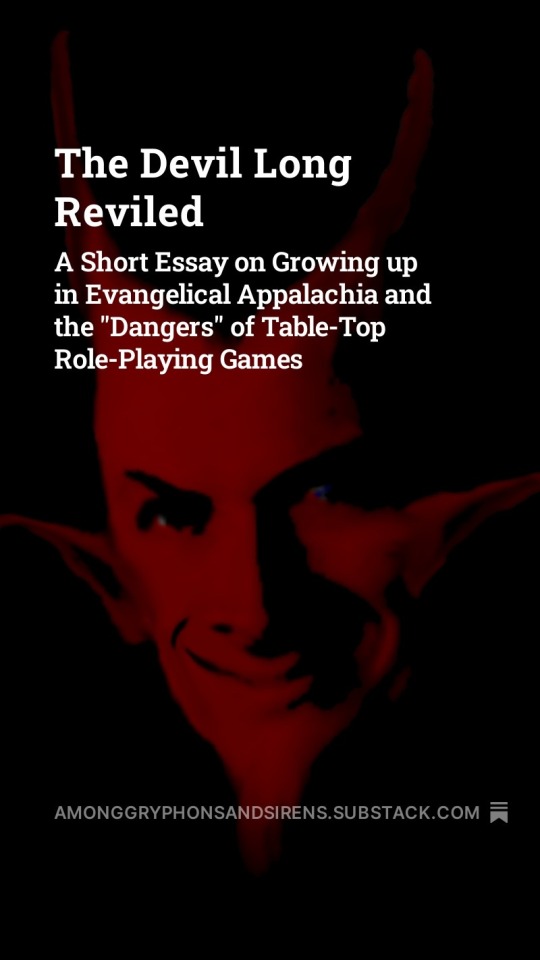
Enjoy!
~ Ramoth13
#ramoth13#fantasy#d&d#ttrpg#ttrpg community#appalachia#evangelicals#christianity#the devil#magic#religion#philosophy#essay#dungeons and dragons#dungeons & dragons#critical role#dimension 20#satanic panic#bible belt#jrr tolkien
4 notes
·
View notes
Text
I was utterly delighted to find that this aesthetic had a name attached to it. I do hate the world I live in sometimes, but it's moments like this, when the human experience has found a language for the niche and unique experiences that encapsulate a love that I love our little world too.
Today's aesthetic is adventure pulp
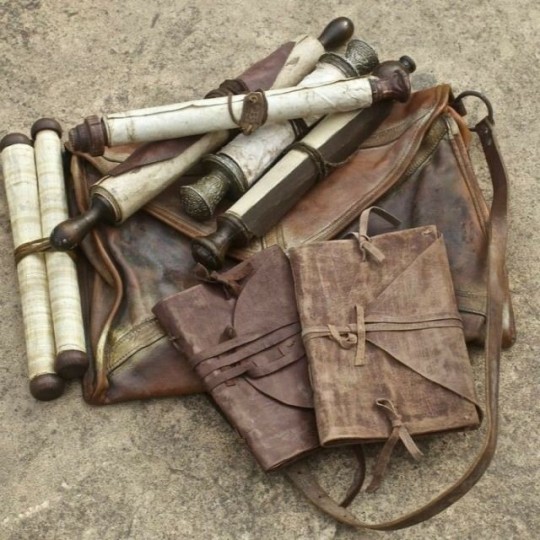
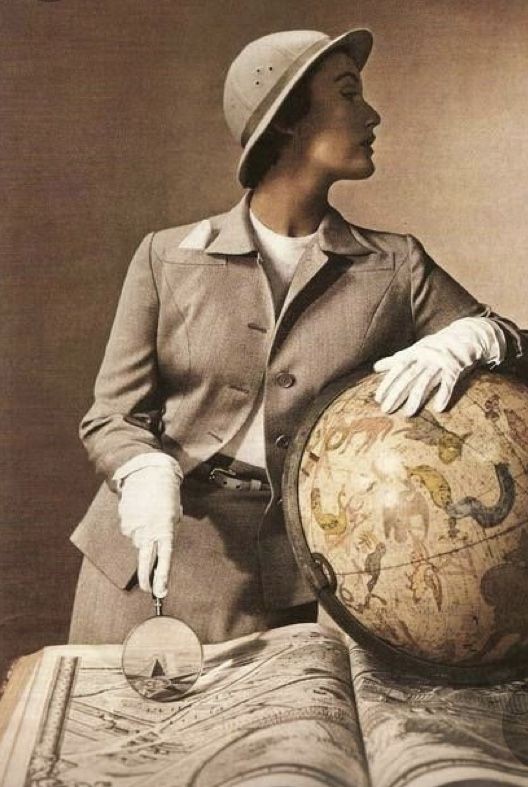
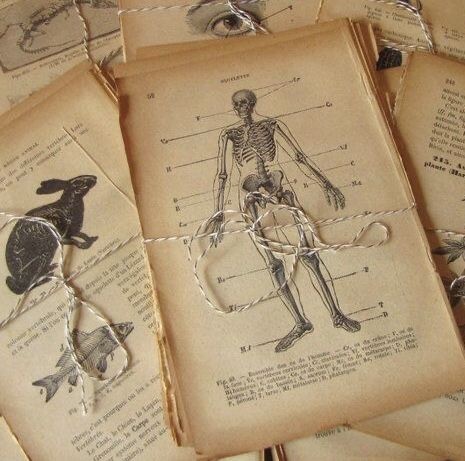
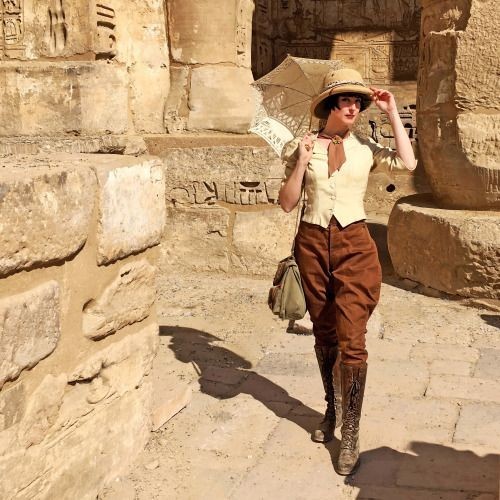
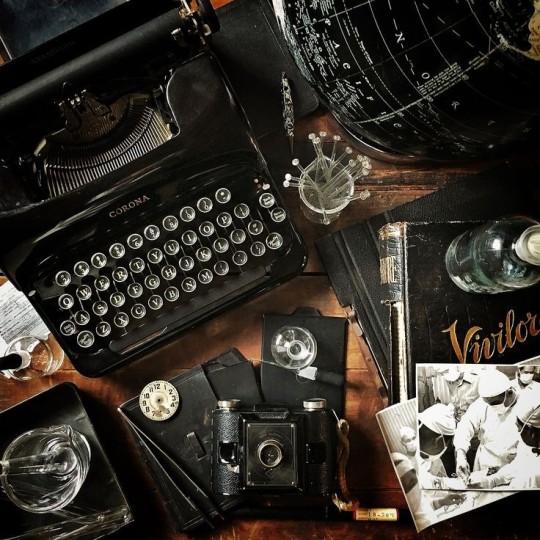
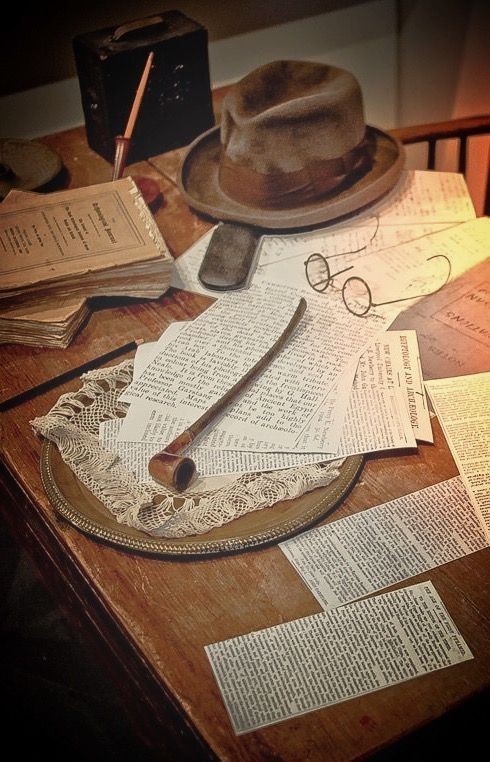
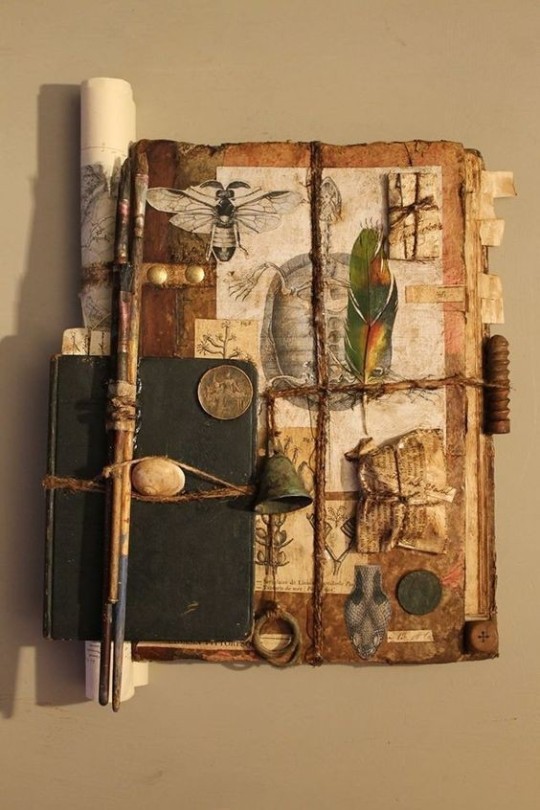
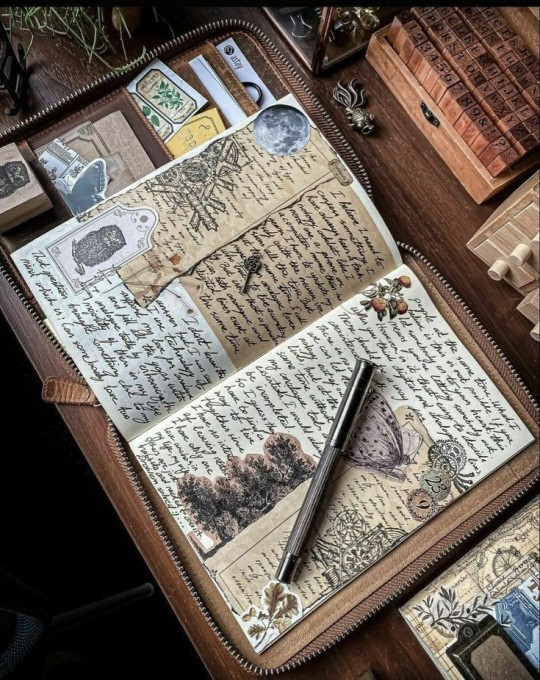
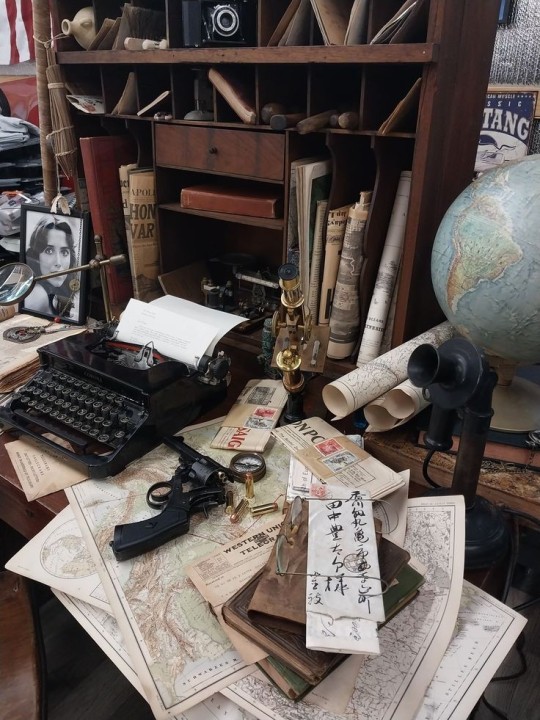
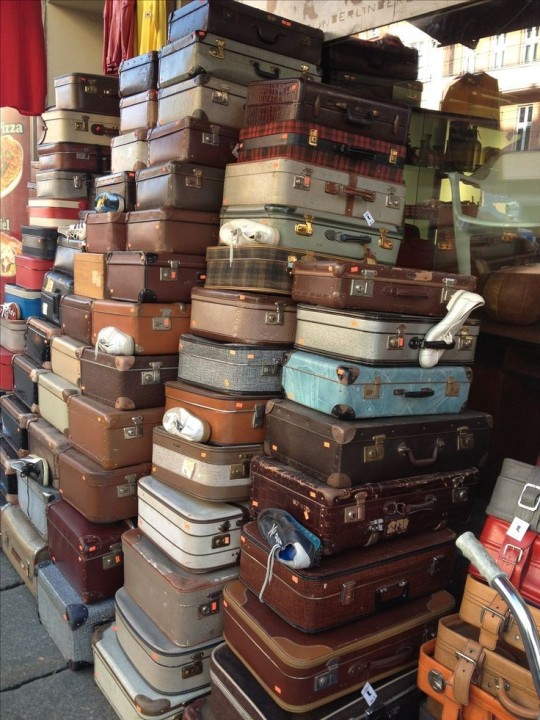
323 notes
·
View notes
Text
Touching the Ancient: Fact and Fiction

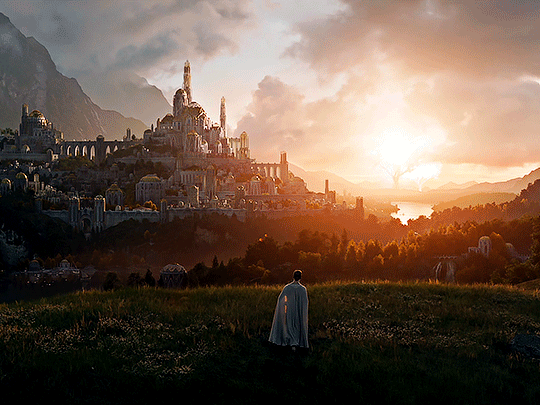
There exists a fascination within our fictions with the idea of the ancient and our proximity to it. Whether it's sprawling archeological adventures, vast forgotten cities, or the writings of those long past, the ancient begs to be heard in the ruins of our ancestors, be it stone or page. The ancient compells us, transforms us, and inspires us forward. Nowhere does the ancient affect us more than in fantasy, that genre where the ancient need not be present at all, yet has more prevalence and dominion than in almost any other genre.
But where does that stem from?
It is hard to imagine such ancient fascination originating anywhere outside of the Mythology of our religions.
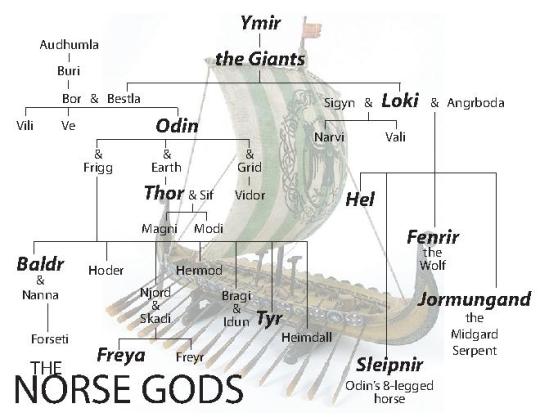
Mythology is the ancient that is still (in so far as it pertains to religion) relevant. Here, I used Norse Mythology, because of its relation to stories such as Beowulf and Medievalism, but take your pick. Hinduism, Buddhism, Judaism, Zorastrianism, Greek, and/or Egyptian mythologies all create a narrative that explains why the ancient is immediately relevant. Fantasy, it can and has been said, is a direct descendant of Mythology, extending back to the kinds of myths that are now staples of literature, like the Epic of Gilgamesh or even The Odyssey.
But something happens in the 19th century that changes the layout of ancient history. After Napoleon Bonaparte set out to claim the ancient world for himself, essentially creating the idea of the Meuseum, we set off on a path to reclaim our origins. We start trying to go back, to pinpoint the earliest stages of our existence. Science has become the dominant source of knowledge, and historians and archeologists have become more than just academics, but conduits to a lost world. Thus, it was only natural that during this period, where fact and myth were endlessly enmeshed, that stories began to emerge that radically shifted what "ancient" even was.

Pulp fiction was certainly not the first foray into the ancient, but it was one of the earlier elements that capitalized on our newfound obsession with discovering the ancient. Conan the Barbarian leapt off of the page because his stories doubled down on ancient, marrying our consideration of what was ancient to an even earlier ancient filled with eldritch monsters and secrets best left buried.
"Know, O Prince, that between the years when the oceans drank Atlantis and the gleaming cities, and the years of the rise of the Sons of Aryas, there was an Age undreamed of, when shining kingdoms lay spread across the world like blue mantles beneath the stars - (...) Hither came Conan, the Cimmerian, black-haired, sullen-eyed, sword in hand, a thief, a reaver, a slayer, with gigantic melancholies and gigantic mirth, to tread the jeweled thrones of the Earth under his sandaled feet."
Conan's age before written histories was an endless opportunity to tell the human story with all of magics of our myths but without the confines of conflicting dogma. Lovecraft's tales invoked fear and the utter unimportance of humanity in the face of the ancient cosmos, while Edgar Rice Burrough's tales sang of a new dominance over the ancient by the modern man in Tarzan and John Carter. The early 1900s were a breeding ground for the kinds of stories that would later inspire the masses.
Now there is a taste for the weird and a desire for the old. Enter, Tolkien.

(You didn't really think I'd go an entire short essay without bringing him up, did you?)
A linguist with a fascination of mythology and weird stories, the dear professor decides to enter the game. He wants to write his own history of our world before the dawn of recorded histories, but he's got his own ideas on how detailed he wants to be.
Rather than merely creating another history, Tolkien's mythology instead seeks to tap into the ancient by recreating the historical hurdles that historians face. The books we get are (according to Tolkien, *wink * *wink*) translations of copies of copies of retellings and secondhand accounts with lots of missing data.
"Tolkien used the language of the historians to create fabricated history with all of its flaws. This sets up a world where the past is immediately relevant, something Tolkien desperately wanted" (I'm paraphrasing Sherrylyn Branchaw here).
The world of Middle-earth is ancient for us, but contains the ancient within. The Elves have risen, and fallen. Morgoth's legacy remains, but his person is gone. Gondolin, the twin trees, Numenor, all ancient and almost forgotten in the time of Bilbo and Frodo.
The fantasy genre as a whole is subjected to the ancient as a trope after this. From the Howard-esque sword and sorcerous world of Michael Moorecock's Elric of Melnibone, to the endless stories of myth and magic, the ancient is the obsession of the "nerdy" even unto genres you wouldn't expect. So many superheroes get their powers from ancient beings (Shazam, Dr. Fate, Thor himself, etc) and even in the most iconic space operas....

Its a part of Star Wars that people often forget, but the where of this story is just as important as the when. It's the starting point, before all else, it has to tell you that this story is distant from us, but also ancient to us. And somehow that makes it just a slight bit more compelling.
Though the colonialism that is embedded in the "scholar/explorer" genre is definitely something that should be recognized and acknowledged as harmful, the fascination with the ancient (and those of us that love it) is compelling in almost any format.
(Side note: Dr. Justin Jacobs has a wonderful seminar/podcast discussing the "Indiana Jones within History" [which is also a book he wrote,] that is a genuinely a fun read/listen and very informative on the subject.)
Although stories like Indiana Jones tends to be far more fiction than fact, the compelling element of such stories isn't in their truth, but in their possibilities. Dr. Jones says it best in his classroom, "Archaeology is the search for fact—not truth" and while myths may not be true, the bones of these stories is brimming with poetically resonating facts.
As we look forward to new medias, new stories, new myths, and new sagas, I hope we leave the need for truth behind. I long for a day when a story's merit isn't in its "realism" or its plausibility, but in its spirit and its myth. I look forward to the day when we let go of the need for things not to be silly, so long as they are sublime and awe-inspiring. I long for a day when we watch an unrealistic movie and are enchanted by the wonder of the story and the beauty of a book.
That's the power of the ancient in our stories. The power of the tales told round the hearth. None of the best stories are realistic at their core, though "real" might be an ingredient. It's the wonder of a story that matters, and I'll take wonder over reality anytime.
While we look for stories in a new age to love and hold dear, look for the stories where the ancient is alive, where the stories, regardless of plausibility or reality, are living. As Dr. Jones says, "one of the great dangers of archaeology; not to life and limb, although that does sometimes take place. I’m talking about folklore."
~Ramoth13
#ramoth13#The Ancient#archeology#indiana jones#indiana jones and the dial of destiny#the lord of the rings#george lucas#robert e howard#lovecraft#harrison ford#conan the barbarian#michael moorcock#tarzan#edgar rice burroughs#adventure#history#sherrylyn Bradshaw#jrr tolkien#film#lord of the rings#silmarillion#the hobbit#fandom#mythology#religion#myth#star wars
10 notes
·
View notes
Text
Elven Lineage and the Fate of the Last Noldorin Royalty
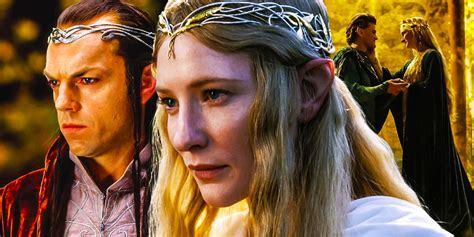
Mae G'ovannen!
I am once again brought back to these lands of old, beyond memory. Middle-earth and the Noldor kings and queen (as if they are ever far from my mind).
Rewatching the Rings of Power (again), I am struck by the beauty of the friendship between Elrond and Galadriel. Watching episode 1 again, I see their friendship in the shadow of the ring.
Elrond so compassionate, hopeful, and kind. His undying friendship is what I believe makes him such a compelling character throughout all of their stories, but also his will to be unchanged by woes of the every day. The way that elrond approaches the ring of power is in such a way that he need not even reject it, for its power has no appeal upon him. Even when it is fully within his realm, we never even question that he sends the fellowship on their way without fuss. Elrond is always pulling out the best and most righteous in people, even those who are not always deserving.
In Imladris, the valley Rivendell, Elrond rules not in defiance, but without regard of the shadow. His is a peaceful place, a home. A perfect calm in the storm.
In contrast, Galadriel must prove that she CAN reject the ring, in order to return home to Valinor. She is passionate, powerful, and cunning. Her powers balance out the force and cruelty of the orcs. In her realm, though life grows, it grows in defiance. The elder trees no longer bloom in Middle-earth, except for Lothlórian. Her powers are in defiance to the shadow.
And in this, they are in balance.

Yet, I saw something in them that I had not before this viewing. They are a rekindling of friendship of a different kind. They unite, and do not seek the pain and suffering of their forebears. They have evaded the trap that the first elven lords fell into.
Notice, that although Elrond has the greater claim to rule the Noldor, he does not? Never had I really considered this, but it was Fingolfin's line that was upon the throne. And yet, when the time came, it was Galadriel that took the throne in Middle-earth. Now, it makes sense, because she is the eldest of the Eldar in Middle-earth, and one of very few who still remembers the light of the twin trees.
Still, it does make one wonder.
Why was there no conflict?
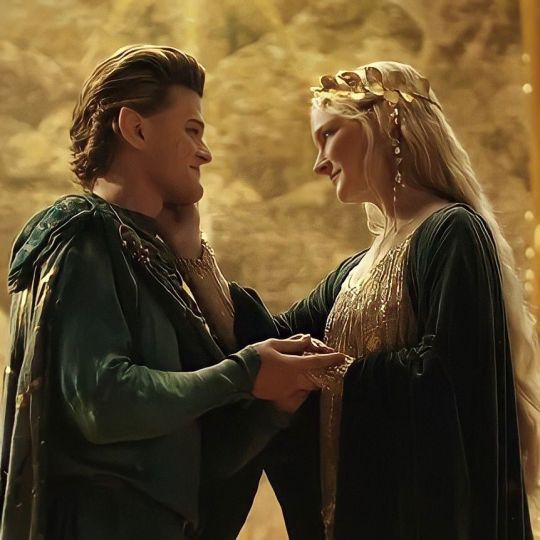

(Art by Jenny Dolfen)
In times past, when last the elven lords of old disputed the rule, there was endless conflict that burned the whole of the world. But between Galadriel and Elrond, only friendship. And hard won friendship, at that.
In this light, seeing them navigate the pitfalls of their ancestors really does invite a new perspective that I have thoroughly enjoyed on the rewatch. And I cannot help but look forward to what comes next in their story as friends.
Not to mention how Gandalf gets his name among the Elves.

Just some thoughts for you RoP fans out there.
In any case, I wish you all well!!
Galu!
~ Ramoth13
#ramoth13#silmarillion#film#the hobbit#fandom#rings of power#lord of the rings#elrond rop#galadriel#elrond#fingolfin#feanor#amazon lotr#lotr rings of power#rings of power season 2#rop season 2
27 notes
·
View notes
Text
The Argent Cage of Durin's Bain

When writing posts about Rings of Power I tend to focus on how the adaptation illustrates and illuminates the stories we know and see. So far, we have seen Rings of Power setting up major events in a way that, until recently, has not been explicitly explained/shown.
For instance, it has explained how and why when Sauron does show up, Galadriel and Elrond are not believed, etc.
*FAIR WARNING, SPOILERS FROM HERE ON OUT*
Yet, after talking with some people, I'd like to expand to some fan theory making as well. I've heard more than one person expressing frustration that a small leaf tossed from a tiny hole in a rock wall awakened the great Balrog of Moria. The scene in question shows King durin tossing a recently cured leaf from one of the great elven trees through a rock wall that hides a huge cavernous expanse downward, with giant veins of Mithril descending down into the deep like roots from a silver tree. At the Bottom, we see a Balrog materialize out of the darkness and roar into the screen before the scene cuts to something else.
It's an interesting scene, but I think for reasons far beyond the already known Balrog in the depths of Moria. Most interesting, is the implication that Mithril has some anti-evil qualities. It is pre-established that merely being in the proximity of Mithril cures the leaf of the blight, pushing it away from itself like a magnet.
In light (pun mostly intended) of the Mithril veins that spiral down, the implication isn't that the Balrog was ever asleep at all, but rather, it's been caged. The Mithril seems to be acting as a holding area, magnetically keeping him in the middle of the mithril surrounded chasm.
If this is, indeed, the element they are trying to portray, this says three things to me at once. 1. King Durin knows more than he's letting on. He knows something of what's down there, and is fighting hard to keep things as they are. 2. Prince Durin is mining away at the very cage that releases the monster. And 3. by doing so, he also brings about Sauron's ultimate doom.
Mithril saves Frodo's life. Interesting to consider, but one might ponder on the implications of Mithril's rejection of evil and Bilbo and Frodo's ownership of a kingly gift of a Mithril shirt.
If nothing else, it is an interesting theory.
Novaer, Mellon!
~ Ramoth13
#ramoth13#silmarillion#film#the hobbit#fandom#jrr tolkien#lord of the rings#tolkien#rings of power#balrog#morgoth#moria#sauron#frodo baggins#bilbo and frodo#prince durin#king durin#Elrond#Mithril#khazad dûm#rop spoilers#rop#Lady Disa
56 notes
·
View notes